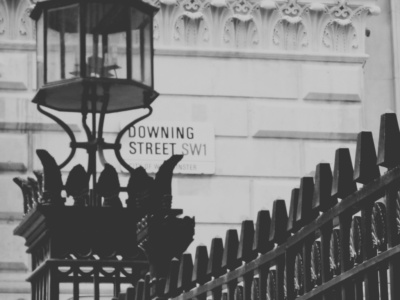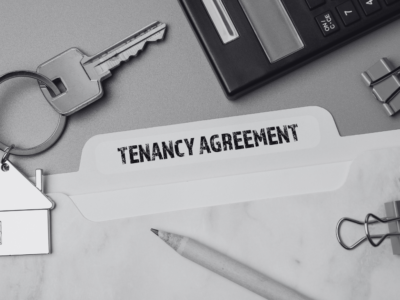The Bank of England’s Monetary Policy Committee has today voted by a majority of 7-2 to increase Bank Rate by 0.75 percentage points, to 3%.
This 0.75% increase is the largest single jump since 1989, also pushing the base rate up to its highest since November 2008.
Simon Gammon, Managing Partner, Knight Frank Finance said:
“I would be surprised if we see a meaningful rise in mortgage rates in the coming days even with such a large rise in the base rate.
Many fixed rate products sit somewhere between 5.5% and 6%, which is still high when you consider the base rate is at 3%.
Mortgage rates have only just started adjusting following the mini-budget and that should have further to run.
Swap rates – instruments used by lenders to price mortgages – have been trending downwards.
If they continue to do so, we believe that some borrowers could still enjoy fixed rate products starting with a four in the weeks ahead.
This will of course be dependent on the lenders and how they view the outlook, but we think there’s room for more easing in mortgage rates or at the very least a plateau.”
Tom Bill, head of UK residential research at Knight Frank, said:
“This latest bank rate rise is the clearest indication yet that a 13-year period of ultra-low borrowing costs is over.
Buyers and homeowners need to remember the impact of the mini-Budget won’t last forever and mortgage rates should start to calm down from the levels reached last month.
However, more than four million first-time buyer mortgages have been issued since rates were cut to 0.5% in March 2009, meaning many people don’t have first-hand experience of monthly mortgage bills rising meaningfully.
This normalisation of rates plays a central role in our forecast that prices will fall back to their summer 2021 levels.”
Jeremy Leaf, north London estate agent and a former RICS residential chairman, comments:
“What’s more important for housing market prospects than interest rate movements is the confidence to take on extra debt.
If home buyers who need a mortgage believe payments are going to rise rapidly, they will sit on their hands.
However, just under a third of households have a mortgage and about 75 per cent of these are on fixed-rate deals so the impact will be less immediate.
However, if this larger movement is regarded as the highest or close to the highest rates are likely to reach then it will begin to bring some much-needed stability.
At the sharp end, we know the appetite to move remains and not only from those who have to due to debt, death, divorce and downsizing – it’s just a question of when.”
Tomer Aboody, director of property lender MT Finance, comments:
“Rising inflation, coupled with the disastrous mini-Budget, mean this rate rise was always on the cards.
Borrowers need to come to terms with the new norm, which is higher interest rates – the rock-bottom rates of the past are long gone.
As rates rise and the cost-of-living increases, the negative impact on the housing market is inevitable.
Given the importance of the housing market to the wider economy, the government needs to provide some form of assistance to stimulate the market.
This could take the form of a restructure of stamp duty or some form of mortgage interest tax relief to alleviate some of the many stresses that borrowers will face in coming months.”
Marcus Dixon, director of UK residential research at JLL comments:
“A further rise in the base rate, while uncomfortable for those not locked into fixed rates, was not unexpected.
With it being more a question of when rather than if rates would rise.
This will of course impact the housing market, albeit this increase was likely already priced into new fixed rates deals and market forecasts.
The MPC announcement does not change our outlook. JLL are forecasting that higher interest rates, combined with the winding down of the Help to Buy scheme, will mean we see a 30% fall in transactions in 2023 compared with 2022, around 300,000 fewer sales nationally.
JLL are forecasting prices will fall too, by 6% UK wide in 2023, following a strong performance this year.
But not all areas will perform in the same way. Markets less burdened by debt, with a higher proportion of cash purchasers, are expected to be better insulated, central London for example is forecast to see a 2.5% increase in prices next year.”
Jon Neale, head of UK research at JLL adds:
“On the commercial side, the rise in base rates confirms market expectations, and supports the ongoing repricing which has seen yields move out by 50-125bps over the past few months.”
CEO of RIFT Tax Refunds, Bradley Post, commented:
“Today’s decision will only add to the existing anxiety caused by the current cost of living crisis that has engulfed many households in recent months.
As a result, those who are already stretched financially thin are now facing a further squeeze on their monthly earnings, as the cost of everything from our mortgage repayments, overdrafts loans and credit cards is set to climb.
Unfortunately, there isn’t a great deal that can be done to ease these increased costs, other than tightening our belts where our borrowing habits are concerned.
Of course, for the vast majority, the belt simply can’t get any tighter, whilst many more have no other choice but to utilise overdrafts and credit cards simply to get by from one month to the next.”
CEO of Alliance Fund, Iain Crawford, commented:
“The mere suggestion of a three per cent base rate will be unheard of for many homeowners who have only known interest rates to sit below one per cent until very recently.
So they can be forgiven for feeling a tad dizzy at the prospect of what their mortgage is now likely to cost them, with the Bank of England not only implementing the largest single increase in over 33 years, but also pushing the base rate to its highest since November 2008.
Such a hike will also stun those who were currently in a position to buy, but are now likely to find that the cost of borrowing is no longer as affordable as it was.
This will not only dampen their enthusiasm within the sales market in terms of the price they are willing to pay for a property, but it’s likely to keep many exiled within the rental sector for quite some time more.
So while the housing market may be in for a very rough ride over the coming months, it’s a safe bet that the rental market will be thriving.”
Director of Benham and Reeves, Marc von Grundherr, commented:
“Forget Halloween, it’s the Bank of England that has just delivered the fright of the year for the nation’s homebuyers with the biggest jump in interest rates in over three decades.
Those on variable rate products can expect to see an immediate increase in their monthly payments, while those coming to the end of their fixed term can be suitably worried about what’s to come when they do remortgage.
This latest increase will also do little to revitalise the declining level of buyers entering the market, with many now finding they simply can’t afford the cost of borrowing compared to just a few short months ago.”
CEO of Octane Capital, Jonathan Samuels, commented:
“While the mortgage market has settled in recent weeks, today’s latest base rate hike will certainly sow more seeds of panic amongst the nation’s homebuyers and who can blame them after witnessing the largest single increase since 1989.
The average homebuyer opting for a variable rate mortgage can expect to see the cost of their monthly repayment increase by around £166 per month as a result of today’s increase.
Those currently coming to the end of a three year fixed mortgage will also see an increase as they look to secure another fixed term, with their monthly repayment increasing by an estimated £257 per month, despite having cleared a substantial chunk from their original loan.”
Managing Director of Barrows and Forrester, James Forrester, commented:
“The prolonged period of borrowing affordability that the nation’s homebuyers have basked in for some years is well and truly at an end.
This latest, quite drastic hike, shows that the Bank of England have been asleep at the wheel for some time, awaking only now to the realisation that the economy is hurtling towards a sharp bend.
While we anticipate that the base rate will fall again come next year, we can expect market conditions to dampen over the coming months as buyers no longer have the purchasing power to pay the hefty property price premiums of the pandemic market boom, while sellers will remain stubborn in their expectations and refuse to adjust their asking price.
Whatever happens next, homebuyers need to wake up and smell the coffee, as high loan to value mortgages at low rates are now a thing of the past.”
Managing Director of HBB Solutions, Chris Hodgkinson, commented:
“We’ve already started to see the impact that a steady increase in interest rates has had in recent months, with chaos unfolding across the mortgage sector, while mortgage approvals have started to tumble, with house prices now following suit.
Well you ain’t seen nothing yet and today’s mammoth base rate jump is sure to prove the final nail in the coffin of the pandemic property market boom.
Buyers will now be treading with extreme caution and those looking to sell will find that they simply can’t secure the same price as they would have this time last year.”
Founding Director of Revolution Brokers, Almas Uddin, commented:
“Today’s increase may seem like a daunting one, but the good news is that the existing affordability criteria will ensure many borrowers are able to keep their head above water.
There may be times when the base rate and resulting cost of a mortgage exceeds these stress test thresholds, but should this happen it is likely to be short lived.
In any case, lenders are keen to work with their customers and will avoid repossessions at all costs as it’s in everyone’s interest to do so.
Nobody wants to see an increase in forced sales that create misery and drag down the housing market even further.
For those worried about the increased cost of their mortgage, talk to your lender and for those approaching the end of a fixed term, start these conversations at least six months before so your lender can get you onto the cheapest fixed rate available.”
Avinav Nigam, cofounder of real estate investment platform, IMMO, says:
“Rising interest rates have two major consequences for the property market.
Firstly, there is an immediate increase in the cost of mortgages for the circa 2 million borrowers on variable rate mortgages.
Secondly, there is the longer-term influence on demand and supply, since both acquiring and building new properties becomes more costly.
Both impacts have the same consequence: more demand for rental housing, and therefore a greater need to put time, money and effort into improving our private rental sector housing stock.
As monthly finance costs increase for borrowers on variable rates for circa 8 per cent of the UK’s housing, there could be an opportunity for some investors to buy housing to live in or as an investment.
The people currently living in these homes still need a place to call home, and many will shift to the rental market.
As borrowing costs increase, alongside the rise in general pricing that has caused this rate rise, building becomes more expensive.
New building projects are being put on pause, curtailing future supply.
Again, the result is that the shortage in supply of new housing gets worse.
This increases demand for rental housing.
This is why investors tell us that as interest rates rise, investing in and improving rental housing makes even more sense: commercially and socially.”
Mark Harris, chief executive of mortgage broker SPF Private Clients, says:
“The market expected a 75 basis points increase, which could have been worse had the Liz Truss government prevailed.
Swaps have eased by more than 100 basis points since the mini-Budget, so while 3 per cent may not be the peak for base rate, we don’t believe it needs to, or can go, much higher.
With the money markets already pricing in their expectations, we are not expecting new fixed-rate mortgages to rise by an equivalent amount.
Given how the markets reacted to recent political interventions, gilt yields and Swaps have fallen so fixed-rate mortgages could actually fall in coming days and weeks.
Lender appetite and competitiveness may also increase as activity falls, adding further impetus to recent rate reductions.
There is a trend towards tracker or variable-rate mortgages with no early repayment charges.
Borrowers are opting for these in the hope that fixes will settle at a lower level before they move over.
If interest rates don’t rise as far as previously feared, variable rates will prove to be increasingly attractive.
Those on trackers will see their mortgage payments rise by the full amount – someone with a £200,000 base rate tracker mortgage currently paying 3.25 per cent will see their monthly payments rise from £975 to £1,056.
Those on variable rates are also likely to see an uptick in their monthly payments but the extent depends on their lender and how much of the rate rise it passes on via its standard variable rate.
Thankfully, a very high percentage of borrowers have taken out fixed-rate mortgages over the past few years so no immediate impact will be felt.”
David Reed, operations director at Richmond estate agency Antony Roberts, says:
“First-time buyers, in particular, will be conscious of the impact a further rate rise on their mortgage payments.
They may pause while they weigh up the feasibility of plans to buy before Christmas.
They may even hold off until the Spring or Q2 and reassess the situation then.
A preference to continue renting instead of buying will further restrict the supply of rental accommodation coming to market at a time when availability is already acute in many areas.
The situation is very different for those buyers with a formal mortgage offer. For them, there is a rush to complete on a purchase before the bagged relatively attractive rate expires.”
Ben Woolman, Director at Woolbro Group, commented:
“The Prime Minister has a real fight on his hands if he’s still determined to turn ‘Generation Rent’ into ‘Generation Buy’.
First-time buyers have been dealt blow after blow since the Government introduced the stamp duty holiday at the beginning of the pandemic which, effectively, only benefitted existing homeowners and second-steppers.
And despite helping hundreds of thousands of first-time buyers onto the ladder since it was introduced, the Help to Buy scheme is also coming to an end and the Government seemingly has no intention of replacing it.
“Following yet another rate rise by the Bank of England, young people will be scrimping and saving to buy their first home amid rising energy bills and rocketing rent prices.
Sadly, for many, this will make putting money aside for a deposit each month next to impossible.
But it is the eye-wateringly high mortgage rates that will serve as the main barrier to ownership for many first-time buyers, who simply won’t be able to afford the monthly repayments.
The Government has a ticking time bomb on its hands when it comes to Britain’s housing crisis – and one for which they may be punished at the polls come the 2024 general election.
If the Prime Minister wants to restore the Conservative’s reputation as the ‘party of ownership’, he must act urgently to tackle Britain’s housing crisis.
An obvious first step would be to commit to long-overdue reform of Britain’s planning system, which has long served as the main obstacle to the country delivering the new homes it needs.
This will make it far easier and more efficient for developers to build properties where they are needed by depoliticising decision-making within planning authorities.”






















Comments